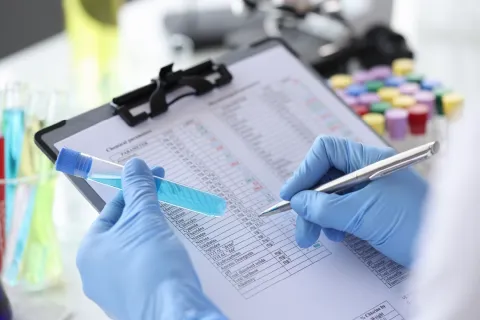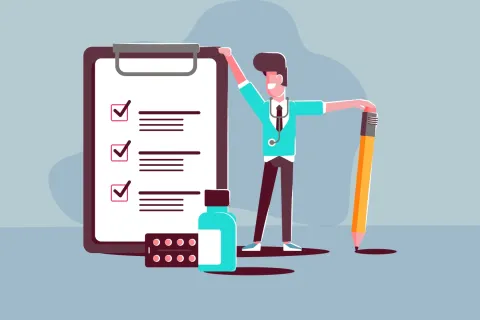
Product recalls in the pharmaceutical industry can have life-altering consequences for patients and lasting impacts on a company’s reputation. Whether triggered by contamination, mislabeling, or deviations from Good Manufacturing Practices (GMP), recalls often originate from vulnerabilities within the supply chain, particularly at the vendor level. In an era of globalized sourcing and complex Regulatory demands, rigorous vendor assessments are no longer optional—they are essential for safeguarding patient safety and maintaining compliance.
The Unique Recall Challenge in Pharma
Pharmaceutical recalls are uniquely challenging. Regulatory bodies like the US FDA, EMA, and CDSCO enforce strict standards, and any deviation can lead to swift market withdrawals. The stakes are high: a single recall can result in Regulatory penalties, lawsuits, and erosion of trust among healthcare professionals and patients.
Many recall events can be traced to issues with third-party vendors, whether Active Pharmaceutical Ingredient (API) suppliers, contract manufacturers, packaging partners, or logistics providers. A lapse in quality or compliance at any point can compromise the integrity of the final product.
Why Rigorous Vendor Assessments Are Vital in Pharma
A robust vendor assessment framework empowers pharmaceutical companies to:
- Mitigate Compliance Risks: Proactively identify vendors with a history of regulatory non-compliance or quality failures, reducing the risk of future recalls.
- Ensure Product Quality: Evaluate vendors’ adherence to GMP, data integrity, and validated processes, ensuring only high-quality materials and services enter your supply chain.
- Protect Patient Safety: By holding vendors to the highest standards, companies minimize the risk of defective or unsafe products reaching patients.
- Maintain Brand and Regulatory Standing: Demonstrating due diligence in vendor selection and monitoring is critical for Regulatory inspections and helps protect brand reputation.
Key Steps in Pharmaceutical Vendor Assessment
- Define Regulatory and Quality Requirements: Clearly outline expectations based on ICH guidelines, GMP standards, and market-specific regulations.
- Conduct Pre-Qualification Audits: Perform on-site or remote audits to assess the vendor’s facilities, quality systems, and documentation practices.
- Evaluate Risk Profiles: Analyze each vendor’s compliance history, recall records, and capacity for traceability and corrective action.
- Implement a Risk-Based Scoring System: Using a structured scoring model, prioritize vendors based on their criticality to product quality and patient safety.
- Ongoing Monitoring and Reassessment: Schedule regular audits and performance reviews and request timely updates on any changes in operations or compliance status.
Best Practices for Pharma Vendor Assessments
- Cross-Functional Involvement: Involve quality, Regulatory, procurement, and supply chain teams for a comprehensive evaluation.
- Standardized Questionnaires and Checklists: To ensure consistency, use industry-standard tools (e.g., supplier questionnaires aligned with ICH Q10).
- Continuous Improvement: Update assessment criteria to reflect evolving regulations, emerging risks, and lessons learned from past recalls.
- Collaborative Relationships: Foster open communication with vendors to encourage transparency and rapid issue resolution.
Illustrative Example: Preventing a Major Pharmaceutical Recall through Vendor Assessment
Stage | Action/Discovery | Outcome/Impact |
|---|---|---|
Pre-Launch | A company is preparing to launch a new injectable drug. | High vigilance is required for all components and suppliers. |
Routine Vendor Assessment | The quality team audits a secondary packaging supplier. | Detects changes in ink formulation used for vial labels. |
Issue Identified | New ink was not subjected to full stability testing; risk of leaching under certain conditions. | Potential threat to drug safety and Regulatory compliance. |
Corrective Action | Supplier instructed to revert to validated ink and perform additional stability studies. | Risk is mitigated before the product reaches the market. |
Result | The issue is contained before distribution. | Avoided a major recall, Regulatory penalties, and protected patient safety. |
Lesson | Proactive vendor assessment enabled early risk detection. | Reinforce the need for rigorous and ongoing vendor oversight. |
Proactive Vendor Assessments—A Pillar of Pharma Recall Readiness
In the pharmaceutical industry, rigorous vendor assessments are a frontline defense against costly and dangerous recalls. By embedding robust assessment protocols and leveraging expert partners, companies can ensure supply chain integrity, Regulatory compliance, and most importantly, patient safety.
Is your vendor assessment process recall-ready? Connect with Freyr today for comprehensive pharmaceutical Regulatory support and expert vendor management tailored to your global operations. Safeguard your products, your patients, and your reputation with Freyr’s proven expertise.









